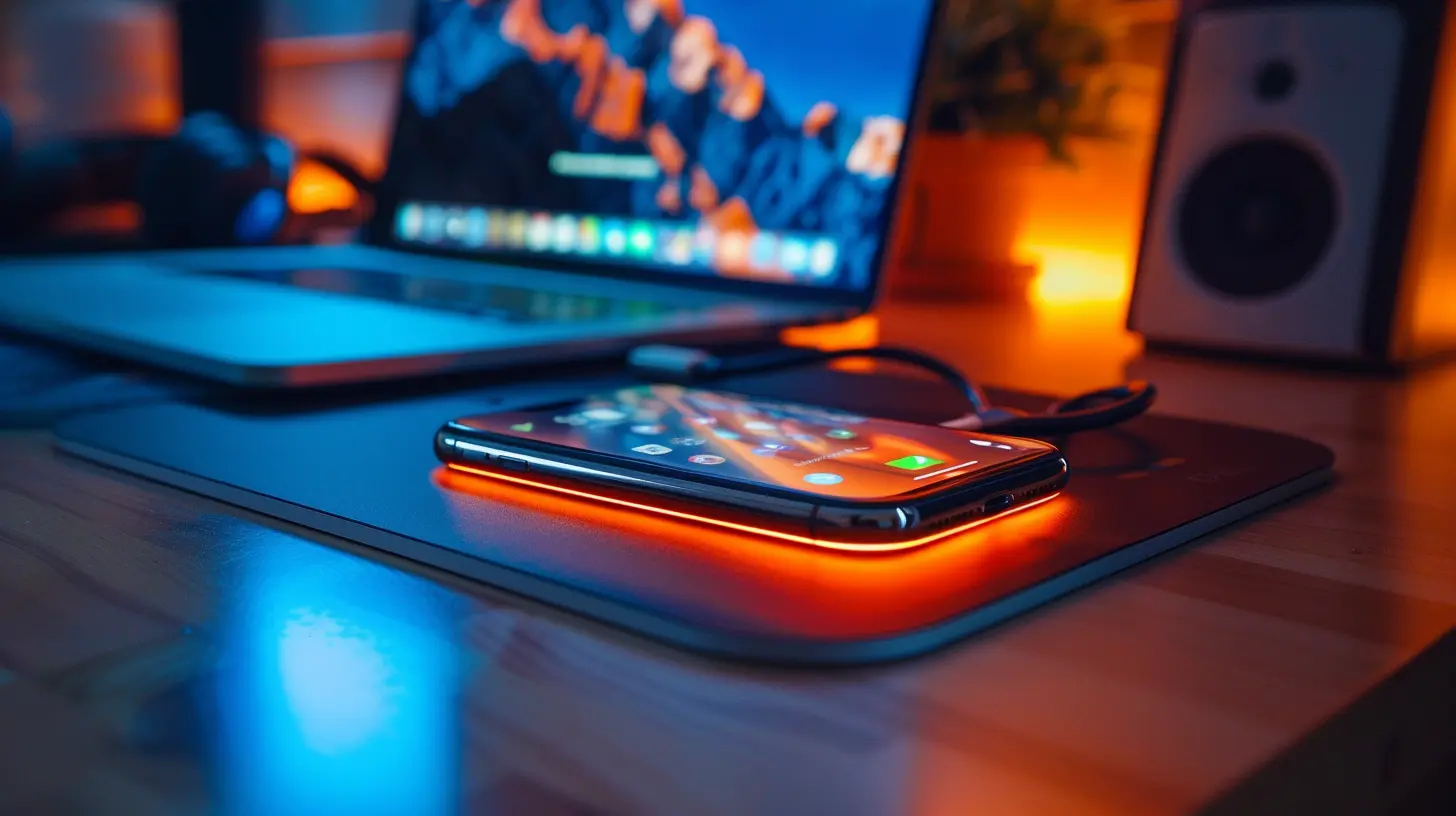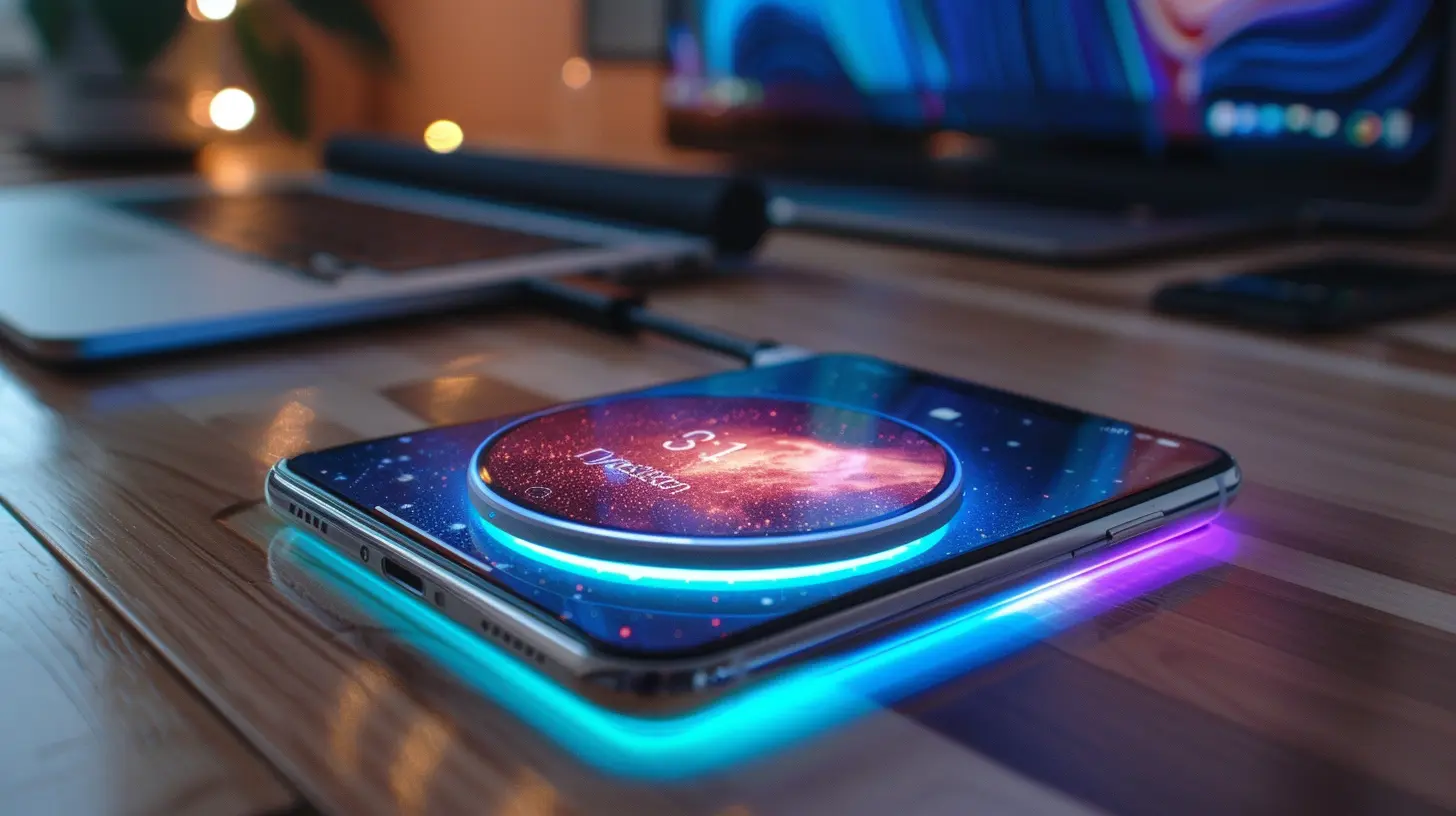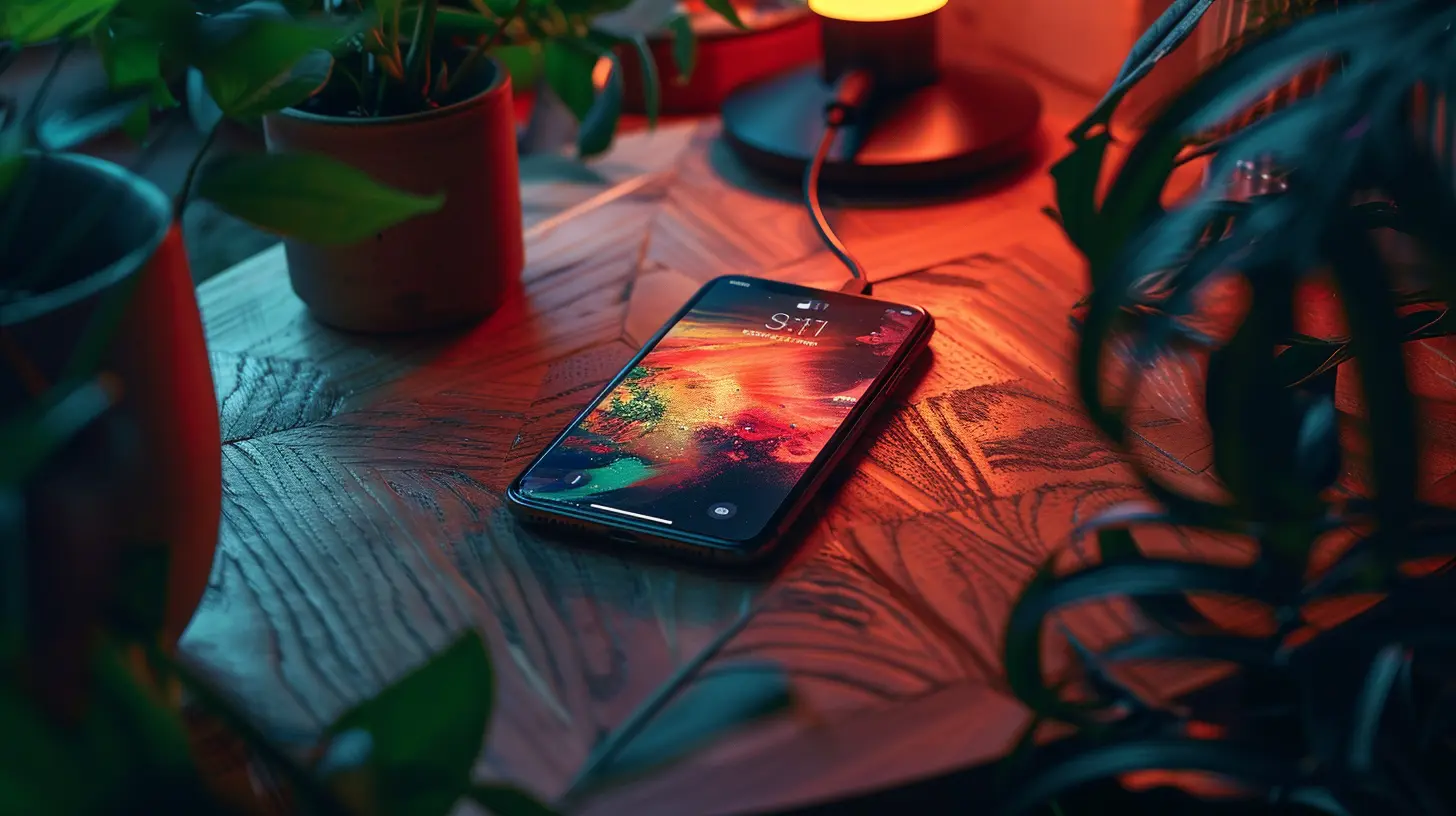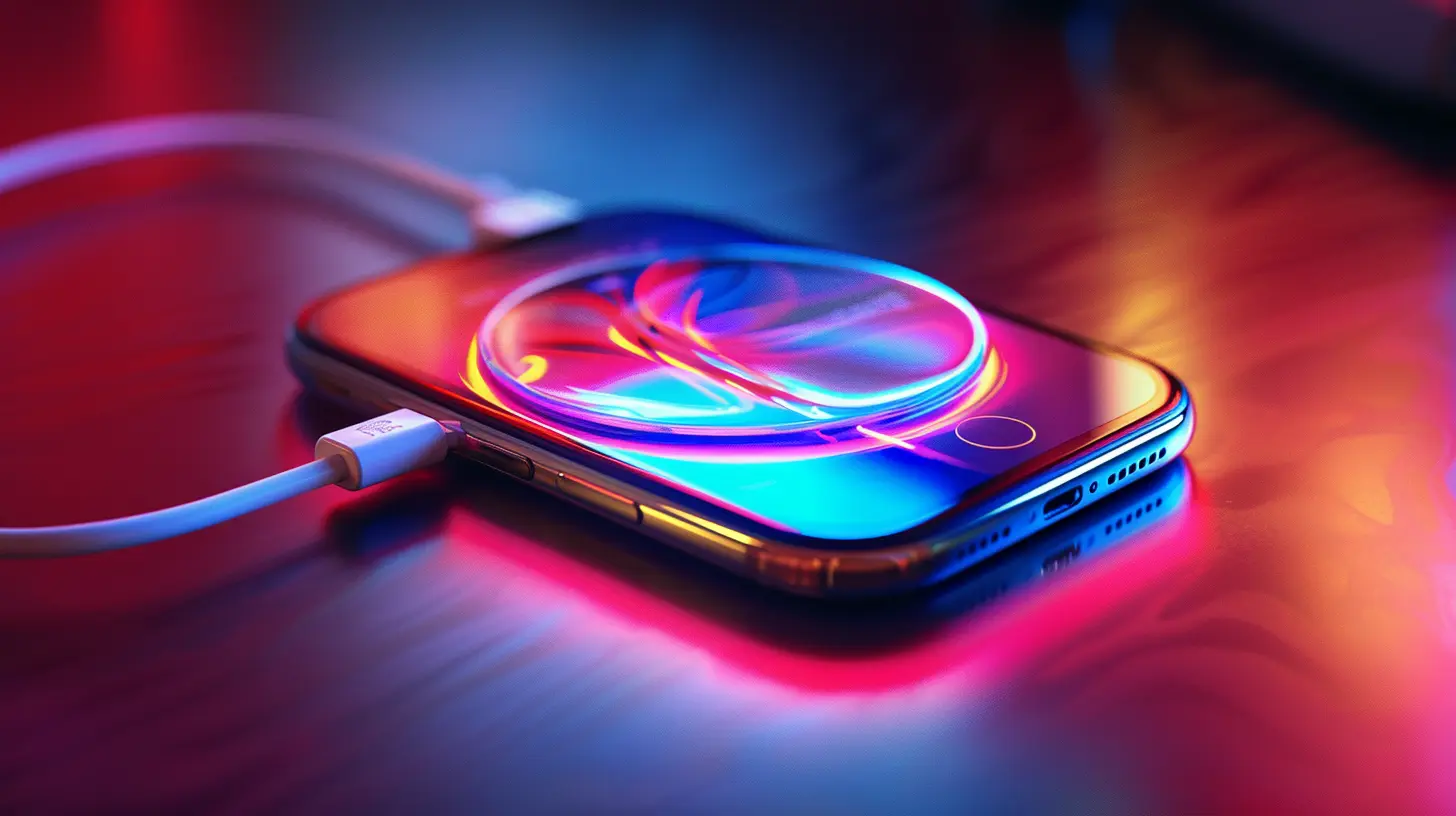Wireless Charging vs. Wired: Which Is Better for Your Devices?
29 June 2025
Let’s talk about something we all rely on—charging our gadgets. Whether it’s your smartphone, tablet, smartwatch, or even your earbuds, they all need juice to keep running. But here’s the million-dollar question: should you go wireless or stick with the traditional wired route?
Wireless charging has been getting a lot of buzz lately. It sounds fancy, looks sleek, and feels futuristic. But is it really better than your trusty charging cable? Grab a coffee (or energy drink, no judgment here), and let’s break this down.
The Basics: What’s the Deal with Wired and Wireless Charging?
Before we jump into comparisons, let’s quickly go over how each one works.🔌 Wired Charging
Wired charging is what most of us grew up with. Plug in a cable, connect it to your device, and voilà—charging begins. It’s simple, fast, and for the most part, reliable.Wired chargers use direct electrical contact, which means energy transfers almost immediately and with minimal loss. It’s like pouring water straight from a pitcher into a glass.
📡 Wireless Charging
Wireless charging—also known as inductive charging—uses electromagnetic fields to transfer energy between two coils: one in the charger and one in your device. No physical cable has to plug into your phone. Just plop your device on the pad, and it charges.Think of it like magic. Okay, not actual magic, but certainly cooler science—a bit like using a remote control instead of getting up to change the TV channel.
Speed Matters: Who Wins the Charging Race?
Let’s be honest—when your phone is at 2% battery, speed suddenly becomes the most important thing in the universe.⚡ Wired Charging Speed
Wired charging is still the king when it comes to speed. Fast-charging cables and adapters can pump out power at blazing speeds—some phones can jump from 0 to 50% in under 30 minutes! Why? Because there’s minimal loss of energy in the transfer. It’s direct, efficient, and powerful.🐢 Wireless Charging Speed
Wireless charging? Not so much. Right now, it lags behind in terms of speed. Even "fast wireless chargers" often don’t compete with the latest wired charging technologies. That’s because of energy loss during wireless transmission—some of that power disappears as heat or gets lost in the air.So, if you’re always rushing or your phone tends to live on the brink of death, wired might be your better buddy.
Convenience: Cord Drama vs. Drop-and-Go
Let’s talk lifestyle. Because convenience isn't just a perk—it’s a big part of how we use our tech.🪢 The Tangled Cable Struggle
Wired charging means dealing with cables. And if you’ve ever had a cable mysteriously stop working, or had to fish one out of your backpack mid-flight, you know it can be frustrating. Not to mention, different devices use different ports—Lightning, USB-C, Micro USB. It’s a headache.In short: cables can be an inconvenient mess.
🧘 Wireless Charging Zen
Wireless charging? Just set your phone down and walk away. It’s especially sweet for nightstands, desks, and countertops. No fumbling in the dark for the charging port. Plus, many wireless chargers double as stylish stands or pads.Devices like smartwatches and earbuds often support wireless charging now too, making it easier to charge multiple things at once using just one pad.
Efficiency and Energy Loss: Who’s Wasting Power?
Alright, eco-warriors and power nerds, this one’s for you.⚙️ Wired Charging Efficiency
Wired chargers are highly efficient. Most of the power from your wall outlet goes directly into your device. There’s very little waste, and your charger doesn’t warm up much—always a good sign that energy isn’t being lost as heat.🔥 Wireless Charging Efficiency
Wireless charging? Not so hot. Literally. It generates more heat, which is a sign of energy loss. Some high-end models are improving, but overall, wireless still lags in the efficiency department. It's like pouring water through a sieve—you’re still getting some, but quite a bit is lost.And all that heat? It’s not just wasted energy—it can stress your device’s battery over time.
Battery Health: Is One Better in the Long Run?
Ah, the battery. The heart and soul of your device. Keeping it healthy is crucial.🧬 Wired Charging and Battery Life
Wired charging, especially fast charging, can generate heat, and excessive heat isn’t great for battery longevity. But modern devices manage heat better than ever. Many phones even learn your charging habits and slow down charging overnight to preserve battery life.🩺 Wireless Charging and Battery Life
Wireless charging tends to warm up devices more consistently, and that residual heat can eventually affect battery aging. However, if you're using a quality wireless charger and not letting your phone overheat, the difference is minimal.In both cases, it's not just about how you charge—it's how often and how long. Keeping your battery between 20-80% and avoiding overnight charging marathons will help, no matter the method.
Cost and Compatibility: What's the Damage?
Because, let’s face it, no one wants to shell out more cash than necessary.💰 Wired Charging: Budget-Friendly
Wired cables are cheap. A decent charging cable can cost less than a cup of coffee. Even fast-charging adapters won’t break the bank. And they’re widely available. You probably have several lying around already.💸 Wireless Charging: Premium Vibes, Premium Price
Wireless chargers, especially the good ones, tend to be pricier. You’re paying for that convenience and style. And not all devices support wireless charging—some older models are left out.So before you invest in a fancy charging pad, make sure your device is actually compatible.
Portability: Who Wins on the Go?
Let’s talk mobility. Traveling? Commuting? Just need juice at a coffee shop?🧳 Wired Chargers Are Ready for Adventure
Wired chargers travel well. They’re small, lightweight, and portable. You can stick one in your pocket and go. Plus, power banks and car chargers almost always rely on cables, so wired charging is way more travel-friendly.💤 Wireless Chargers Stay at Home
Wireless chargers? Not really ideal on the go. They’re bulkier and require a stable surface. You can’t just throw one into your bag and charge your phone mid-walk.So if you’re constantly traveling, wired is still your best bet.
Innovation and Future-Proofing: What's Coming Next?
Tech evolves fast. What does the future hold?🧠 Wired Charging Is Growing Smarter
USB-C is quickly becoming the standard, and that’s a good thing. It’s fast, universal, and supports things like data transfer and video output too. Fast-charging is also improving rapidly—some phones now support over 100W charging!🚀 Wireless Charging Is Catching Up
Big names like Apple and Samsung are pushing boundaries. We’re seeing better energy efficiency, multi-device pads, and even true wireless charging that beams energy through the air (yes, like in sci-fi movies).But we’re not quite there yet. Wireless charging still needs refinement before it can fully replace wired.
Real-Life Use Cases: What Works Best for You?
Let’s break it down based on everyday scenarios.| Situation | Better Option | Why |
|-------------------------------------|---------------------|--------------------------------------------|
| You need your phone ready — fast | Wired Charging | Speed is crucial |
| You hate cable clutter | Wireless Charging | Drop-and-go convenience |
| You're traveling a lot | Wired Charging | Portable and reliable |
| At the office or nightstand | Wireless Charging | Easy, functional, and stylish |
| You’re tech-obsessed (admit it) | Both! | Use wired for speed, wireless for ease |
Final Verdict: Pick Your Power Style
So, wireless charging vs. wired—what’s the bottom line?Honestly? There’s no universal “better." Each method wins in different categories. It really comes down to your lifestyle. Wired charging is unbeatable in speed, affordability, and portability. Wireless wins on convenience and aesthetic appeal.
Here’s a solid strategy: use wired charging when you need speed or power on the go, and rely on wireless at home or at your desk for day-to-day ease. That way, you get the best of both worlds.
After all, who says you have to choose just one?
all images in this post were generated using AI tools
Category:
Wireless ChargingAuthor:

Vincent Hubbard
Discussion
rate this article
2 comments
Maggie McWain
Great article! Whether you’re team wireless or wired, it’s all about what fits your lifestyle. Embrace the tech that charges you up—literally! Happy charging, everyone! ⚡️
November 14, 2025 at 5:05 AM

Vincent Hubbard
Thank you! I'm glad you enjoyed the article. It's all about finding the right fit for your needs! Happy charging! ⚡️
Wynter Jones
Great insights! I love the convenience of wireless charging, but wired is still super reliable.
July 18, 2025 at 11:29 AM

Vincent Hubbard
Thank you! Both wireless and wired charging have their unique advantages, making them suitable for different needs.


